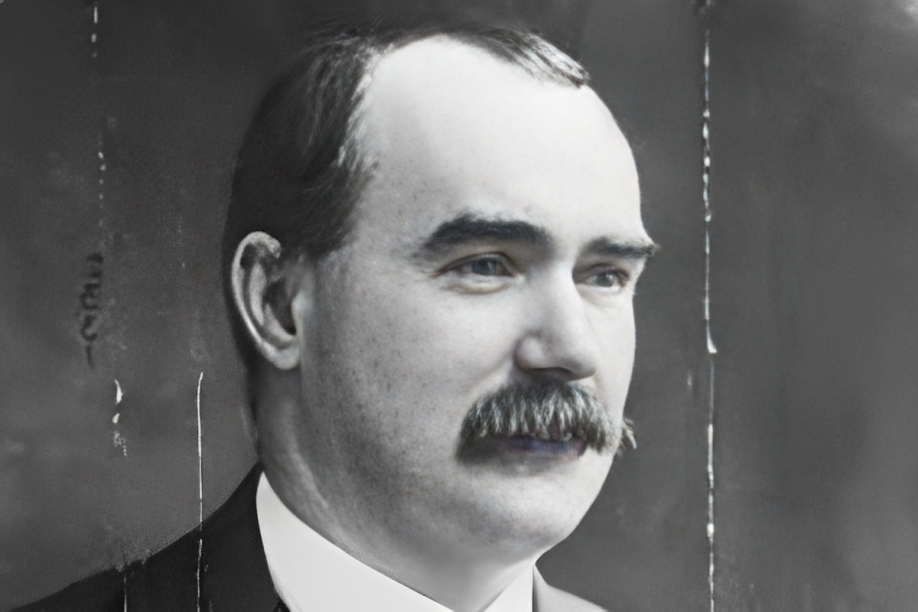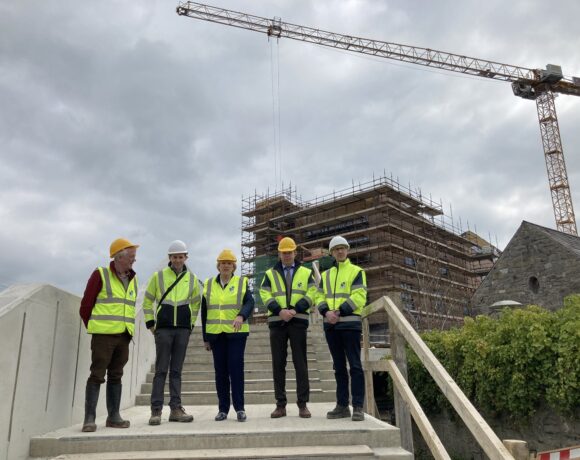James Connolly, socialist and signatory of the 1916 Proclamation, has been commemorated by a Dublin City Council plaque. Born in Edinburgh in 1868, to Irish parents, Connolly became a key figure in the Irish trade union movement and socialist politics, particularly after his return to Dublin from the United States in 1910.
From December 1910 to May 1911, Connolly and his family lived at 70 South Lotts Road, Ringsend, Dublin 4, where the plaque was unveiled by the Lord Mayor. The house is one of only two surviving in which Connolly lived in the city
Connolly then moved to Belfast as organiser for the Irish Transport and General Workers Union (ITGWU), where he saw at first hand the sectarianism that blighted Belfast and the North East generally.
In 1912, along with William O’Brien and Jim Larkin, and others on the Dublin Trades Council, Connolly was instrumental in getting the Irish Trades Union Congress to establish a political wing, giving birth to the Labour Party.
Connolly returned to Dublin from Belfast during the 1913 Lockout and following Larkin’s departure for America in 1914 he became acting General Secretary of the ITGWU and the leader of the Irish Citizens’ Army.
Following the Rising and against the background of the First World War, Connolly became increasingly militant and in 1915 threw his lot in with the IRB, who were planning an insurrection. Joining forces with the Volunteers, Connolly was one of the signatories of the Proclamation and fought alongside Pearse in the GPO.
Following the surrender, and badly wounded and unable to stand, he was executed at Kilmainham by firing squad, while sitting on a wooden box.
Speaking at the unveiling, Lord Mayor of Dublin Daithí de Róiste said, “when we think of the great figures of our history, like James Connolly, we often forget that they lived their lives on the same streets that we do, making their way through our City day-in and day-out. This plaque will remind those who see it that he gave his life to improve the lives of his fellow citizens.”
The plaque was proposed by historian Dr Conor McCabe, Queen’s University Belfast, who said, “Connolly was living here around the time that his most famous work, Labour in Irish History, was first published in book form. This plaque is a tangible link to both his life and his writings.”
Also so speaking at the unveiling was Joe Cunningham, General Secretary of SIPTU, the successor trade union to the ITGWU, who said, “Connolly’s commitment to socialism and broad experience as a trade union organiser in Britain and the United States ensured that the interests of working people were incorporated in the 1916 Proclamation. That, in his own words, at the raising of the Irish Flag over Liberty Hall in April 1916, ‘The cause of labour is the cause of Ireland, the cause of Ireland is the cause of labour.”
The decision to erect the plaque was made by the Dublin City Council Commemorations & Naming Committee, whose chair, Councillor Micheál Mac Donncha, said, “the Commemorative Plaques Scheme allows the City to formally commemorate people who have made a significant contribution to the life of Dublin. We welcome suggestions from the public for people and events to be commemorated, and full details are on the Council website.”
Source: Dublin City Council













